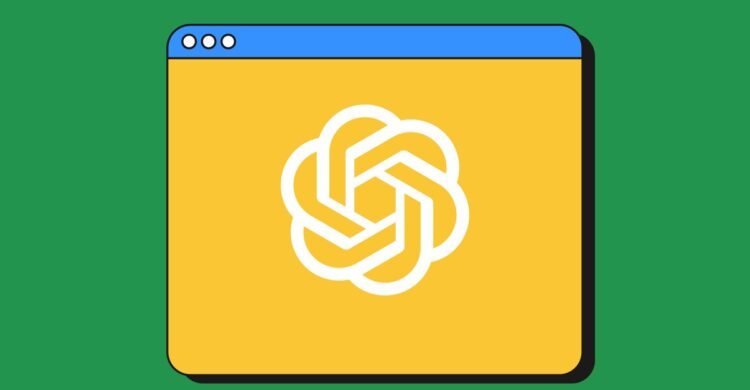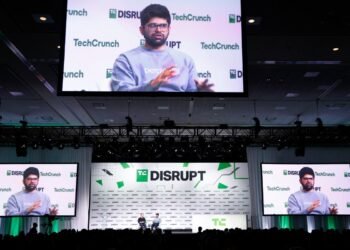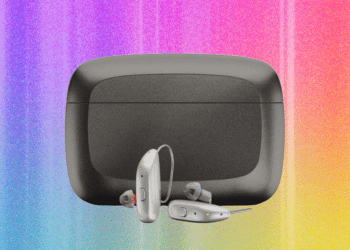At least twice a year, I’ll download a new browser, open it up, and see if the web looks better through a different window. It never does — or at least it didn’t until recently.
We’ve entered a new era of AI-powered browsers. They have names like Comet, Dia, and Neon, and they all make the same promise: to do things for you on the web.
The web is broken, increasingly full of AI slop, and surfing it sucks. Maybe AI agents should do the searching, clicking, and thinking instead? Or at least, maybe they can speed things up. That might mean summarizing a news article, filling out a form, or buying your groceries. ChatGPT Atlas, which OpenAI launched on Tuesday, operates as a search engine of sorts, replacing the ubiquitous Google Search bar at the top with a ChatGPT prompt box. Even Google Chrome offers Gemini as a sidekick that will follow you around the web and explain things to you, like Clippy but less annoying.
If you can get past the irony of AI agents swimming through AI slop, the sales pitch for this new take on web browsers is enticing. So far, as with AI in general, the promises don’t quite match the reality of the software. I’ve tried the agentic AI features in all of these new browsers, and none can do things any faster or better than I can with eyeballs and fingertips.
Nevertheless, I can see the vague outlines of a better web through these browser windows, one that’s more natural to use and less littered with popups and garbage. I can see something that looks a bit like Google Chrome the first time I used it nearly 20 years ago.
What it’s like to surf with AI
The experience of using these AI-first browsers is quite similar — both to each other and to existing browsers. They also look a lot like Chrome on the outside, since most of them are built on the Chromium platform, the open-source project founded by Google. What’s different, however, is the generative AI chatbot bolted on the side.
You can ask the chatbot questions about what’s on the page at any given time, including calendars and emails. They can draft text for you or gather information, all the while learning about your interests. There are generally free versions of these browsers and paid ones. Basic features, like the ability to summarize a webpage, are largely available for free. In order to get access to agentic AI features and more memory, you’ll have to spend $20 a month to upgrade to pro accounts for ChatGPT Atlas or Perplexity, which makes Comet. (Neon, by Opera, is also $20 and currently invite-only, and Dia doesn’t have agents yet.)
What’s really different is that Google takes a back seat in all of the AI-first browser experiences. For as long as I can remember, finding anything online has started with a Google Search that led to a list of blue links or, if you were lucky, the information you were looking for in the form of a map, an image, a video, or, more recently, an AI-generated answer. Sure, the prompt in the AI browser looks just like a Google Search page, but the results are better organized, laid out in bullet points or paragraphs, depending on your query. Google’s search results page, meanwhile, has long been littered with ads, spam, and affiliate marketing links.
Regardless of whether you want an AI agent to book your next vacation, you have to admit that it’s easier to ask ChatGPT for cheap hotels near the best beaches in Maui — spoiler: There are none — than it is to Google it. When you do it in an AI-first browser, like ChatGPT Atlas, you’re supposed to get results that are personalized, based on what the bot knows about you from your previous chats. In other words, you get exactly what you’re looking for on the web faster.
It all comes back to Chrome
If you think back in internet history, this was the original premise of Google Chrome. The official blog post announcing the first Chrome Beta in 2008 billed the browser as “streamlined and simple,” especially since you could fire off a Google Search right from a big box at the top of the browser window. In an update three years later, Google also introduced the ability to sign into Chrome so your personal data followed you wherever you went. Of course, all that personal data helped Google grow its online advertising business and serve you even more personalized ads. Over the years, that led to more bloated search results and a less streamlined web browsing experience in Chrome.
Google has maintained its dominant global market share for both search and web browsers at about 90 percent and 70 percent, respectively. Still, I would argue that you’d be hard-pressed to find someone who absolutely loves using Google Search these days. And by proxy, I have to question anyone who’s still enthusiastic about Google Chrome, which helped cement Google’s position as the front door to the web. I actually switched back to Safari years ago, when Chrome stopped feeling as fast, and Google started getting hit with antitrust lawsuits.
The funny thing is, these AI-powered browsers remind me of Chrome in its early days. Back then, Google bragged about building a browser from the ground up, and in some ways, AI-first browsers represent a gut renovation. Chrome was fast because it redesigned the workflow that loaded webpages and kept tabs running. AI-first browsers are fast because they reconsider how you interact with a browser. There’s no need to dump keywords into a Google Search, although you can do that if you want. You can explain what you need to a chatbot, which can then explain what you’re seeing on the web. The whole experience ends up being quite simple and streamlined.
I’ll be the first to admit that chatbots aren’t for everyone. It took me many hours of experimenting before I figured out how to make this new technology work for me, and now I find myself discovering new ways that tools like ChatGPT can be helpful almost every day. I will also confess that I expect to remain a loyal Safari user, who uses Google Search for all kinds of things.
AI browsers don’t exactly work as advertised right now, but they offer the possibility of a better web, one that’s cleaner and faster. It’s also very possible that companies like OpenAI will suddenly realize, like Google once did, that they can make lots of money by collecting massive amounts of data about their users and using it to sell ads on the web. There are signs that it’s already happening.
A version of this story was also published in the User Friendly newsletter. Sign up here so you don’t miss the next one!

















